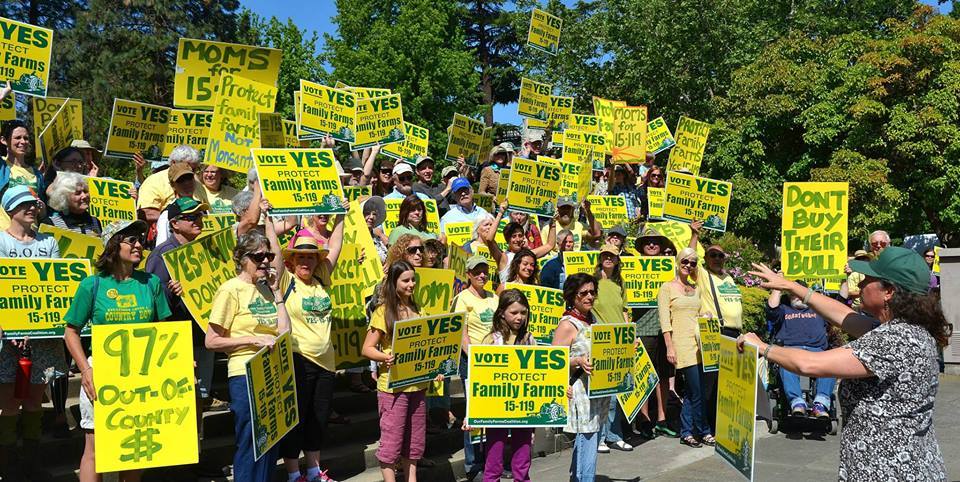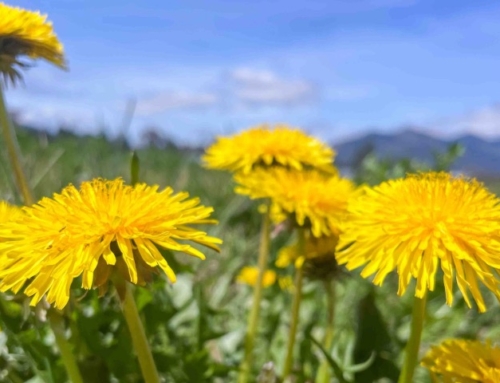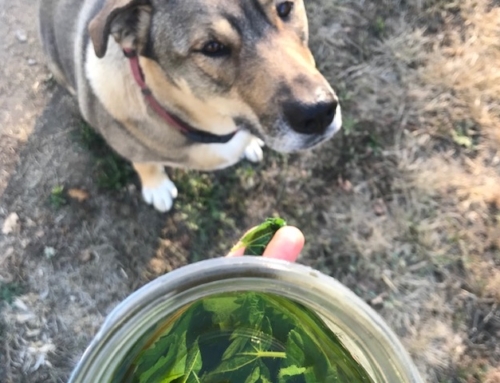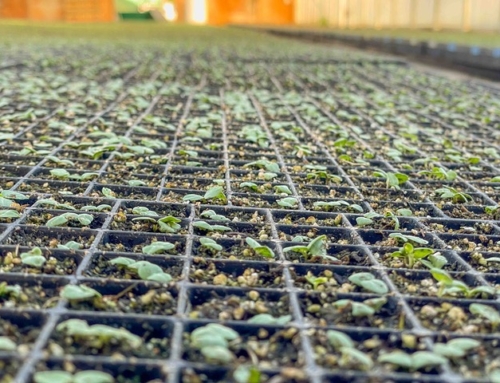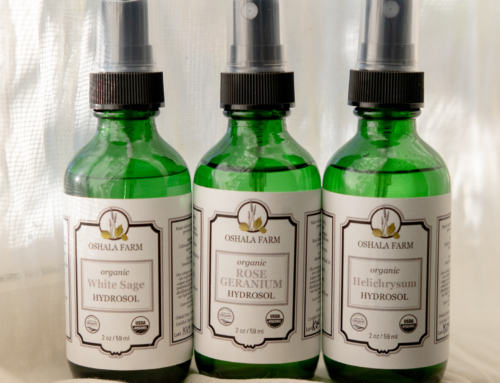We are proud and grateful farmers to be growing in a GMO free Seed Sanctuary, one of only 10 designated GMO free zones in the USA. I was asked by a fellow farmer to run the campaign to ban GMO crops and protect our diverse and rich seed producing heritage. 9 years ago today we passed a historic voter led GMO crop ban in our County. As a farmer, I was losing my birthright to save and collect seed without threat of contamination from nearby GMO seed test plots that were popping up in our valley by Monsanto and friends. Not only are GMO crops grown with multiple applications of pesticides, they have the ability to spread their pollen and contaminate traditional crops growing nearby. In fact, corn pollen can travel up to 16 miles in a windy area! So establishing GMO-free zones, or seed sanctuaries, is very important so we can maintain regions where traditional crops can be grown without the risk of contamination.
If a farmer’s traditional crop becomes contaminated by genetically engineered crops, that farmer’s crop becomes illegal to sell or save the seed because it would contain the intellectual property of the patent holder (for example, Monsanto, Syngenta, or other chemical companies that created the genetically engineered seed.)
Innocent to all the work that was to come to leading this campaign for Our Family Farms Coalition, I excitedly agreed to take on the challenge. I worked day and night with a dedicated core crew and hundreds of amazing community members to educate our region on the potential loss and gain if we could indeed pass this GMO crop ban and create a GMO free seed sanctuary for farmers. could safely grow out seed crops without threats of cross pollination to GE pollen. At the same time, at a state and federal level, rights to vote on seed issues at a local level were being taken away. We soon realized that this would be our only chance to pass a local GMO crop ban.
May 20th is a significant date in our farming community’s history. May 20th, 2014 Election Day is when we learned that voters had passed the ballot measure that would protect family farmers and create a GMO free Seed Sanctuary. A lawsuit was quickly filed and funded by the largest chemical company in the world, suing us for passing the new ordinance and honoring the democratic process. On May 20th, 2015 we defended Jackson County GMO crop ban in federal court and WON! For more information and support the work of Our Family Farm check out their website here
Now we can proudly state on our farm documentation that all herbs produced, processed, packed, offered and sold by Oshala Farm are not derived from or produced using GMOs or their derivatives.
Additionally, we are proud to be located in Jackson County, Oregon which was declared a GMO Free Seed Sanctuary in 2014. The cultivation of GMO crops is prohibited in our county.
This was a modern day David and Goliath story. Family farmers fighting against the largest chemical companies in the world fighting for the right to food sovereignty.
Onward,
Elise of Oshala Farm
We are proud and grateful farmers to be growing in a GMO free Seed Sanctuary, one of only 10 designated GMO free zones in the USA. On May 20th, I was asked by a fellow farmer to take on the role of campaign manager to pass a proposed GMO crop ban because no one with any political career background wanted to risk the probable loss on their resume. I, as a farmer, had nothing to lose other than if the GMO crop ban did not pass, I would lose my birthright to save and collect seed without threat of contamination from nearby GMO seed test plots that were popping up in our valley by Monsanto and friends. Not only are GMO crops grown with multiple applications of pesticides, they have the ability to spread their pollen and contaminate traditional crops growing nearby. In fact, corn pollen can travel up to 16 miles in a windy area! So establishing GMO-free zones, or seed sanctuaries, is very important so we can maintain regions where traditional crops can be grown without the risk of contamination.
If a farmer’s traditional crop becomes contaminated by genetically engineered crops, that farmer’s crop becomes illegal to sell or save the seed because it would contain the intellectual property of the patent holder (for example, Monsanto, Syngenta, or other chemical companies that created the genetically engineered seed.)
Innocent to all the work that was to come to leading this campaign for Our Family Farms Coalition, I excitedly agreed to take on the challenge. I worked day and night with a dedicated core crew and hundreds of amazing community members to educate our region on the potential loss and gain if we could indeed pass this GMO crop ban and create a GMO free seed sanctuary for farmers. could safely grow out seed crops without threats of cross pollination to GE pollen. At the same time, at a state and federal level, rights to vote on seed issues at a local level were being taken away. We soon realized that this would be our only chance to pass a local GMO crop ban.
May 20th is a significant date in our farming community’s history. May 20th, 2014 Election Day is when we learned that voters had passed the ballot measure that would protect family farmers and create a GMO free Seed Sanctuary. A lawsuit was quickly filed and funded by the largest chemical company in the world, suing us for passing the new ordinance and honoring the democratic process. On May 20th, 2015 we defended Jackson County GMO crop ban in federal court and WON! For more information and support the work of Our Family Farm check out their website here
Now we can proudly state on our farm documentation that all herbs produced, processed, packed, offered and sold by Oshala Farm are not derived from or produced using GMOs or their derivatives.
Additionally, we are proud to be located in Jackson County, Oregon which was declared a GMO Free Seed Sanctuary in 2014. The cultivation of GMO crops is prohibited in our county.
This was a modern day David and Goliath story. Family farmers fighting against the largest chemical companies in the world fighting for the right to food sovereignty.
Onward,
Elise of Oshala Farm
